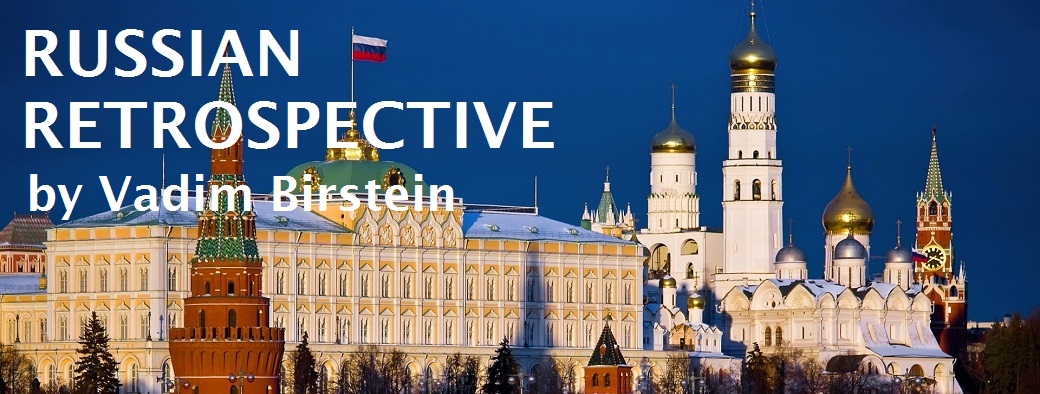On November 24, 2016, the Moscow human rights group, “Memorial”, published a book on the web, authorized by the “Memorial” member Andrei Zhukov, entitled “Staff of the State Security of the USSR. 1935-1939”. This reference book includes biographies of 39,950 NKVD (People’s Interior Affairs Commissariat) officers who were promoted to special state security ranks from 1935 to mid-1939. Under the name “NKVD”, the Soviet state security existed in Josef Stalin’s Soviet Union from 1934 to 1943, when it was divided into two Commissariats, NKGB (State Security Commissariat) and NKVD (Interior Affairs Commissariat). Note that from 1946 commissariats were renamed ministries. Yan Rachinsky, Zhukov’s co-author, explained:
For 15 years [Zhukov] painstakingly collected information and filled cards, starting before the era of computers and databases. In the end, he has set for himself the task of gathering information about all state security officers who received special state security ranks introduced in 1935, shortly before the Great Terror. It was not only the staff of the Main State Security Directorate [of the NKVD], but also representatives of other structures for the prosecution of so-called “enemies of the people.”
The “Memorial” historians Oleg Gorlanov and Nikita Petrov, as well as Arseny Roginsky, Chairman of the “Memorial” board, also participated in gathering information for the publication. In general, the creation of this book was an enormous task since the biographies of the NKVD officers are classified, the authors had no access to the databases of the current Russian State Security Service, FSB, and used only available declassified sources and publications.
The new reference book includes information about almost all NKVD officers who carried out the so-called Great Terror in the Soviet Union in 1936-38. The biographical data was collected primarily from NKVD orders of that time. The reference book allows one to identify many state security employees of that period, previously known only by the last name. Details such as the numbers and dates of NKVD promotions and dismissals, information about length of a particular position, as well as the dates of NKVD awards and the medal “Honorary Cheka-GPU Worker” are given.
“Memorial” calls the publication “a significant step towards a more in-depth and accurate understanding of the tragic history of our country in the 1930s.” Yan Rachinsky explained:
The response [to the publication] has been very great. For many years, the conversation was mostly about the victims of repression. Of course, we are far from being able to name all their names, but most of the work [on collecting the names of victims] has been done, and it does not stop. And it turned out that we have victims of the crimes, but there were no criminals who had committed the crimes.
Nikita Vasilievich Petrov’s reference books contain information about the leaders who directed and commanded the process [of investigation and extermination], but no one knew the names of who implemented [the orders]. Now we know them, and we can learn even more. Many people want to know not only the names of the victims, but also of those who were responsible for the suffering. Of course, there is nobody now who should be punished [all of them are dead], but it is crucial to appropriately name the executioners and their deeds.
We counted on the public response, but did not expect its large scale. In just a few hours of the presence of information on the Internet, Internet users appeared who actively made proposals or improvement, from published sources or family archives. This once again confirms that the reference book is only a starting point for further work.
President Vladimir Putin, former KGB counterintelligence Lt. Colonel, apparently, was not happy with this revelation of the names of NKVD officers. His Press Secretary Dmitry Peskov refused to take a position. “The topic is very sensitive, it is clear that different people have different opinions on it, there are diametrically opposing points of view, and both are sometimes very reasonable,” he said diplomatically.
After a few hours of successful access, the Internet page with the list of names of NKVD officers-executioners became unavailable. According to a cautious statement by Rachinsky, this problem was caused by the high influx of users and great public interest in the project. “Now all the forces are thrown at the resource recovery. Perhaps we will transfer the information to another site or server,” he added.
Another explanation could be that the Russian security service, FSB, is so upset with this revelation that it is trying to make the site unavailable. This seems to be confirmed by reports that relatives of the NKVD officers say they fear retaliation by the descendants of the repressed. Also, FSB officers fear that in the future their personal data with their own “track records” may appear on the Internet.

Pingback: Memorial Society and its Members Persecuted | Dr. Vadim Birstein